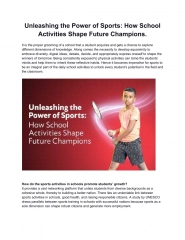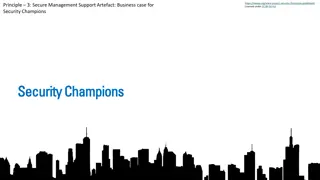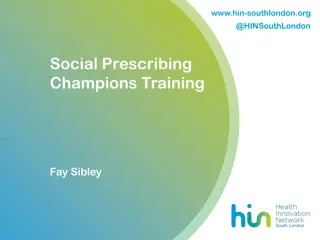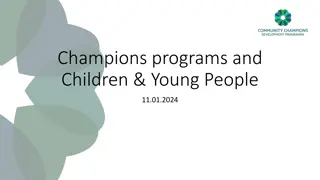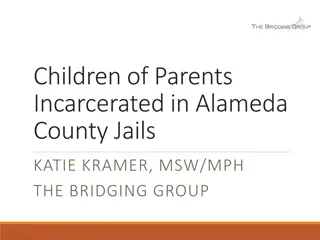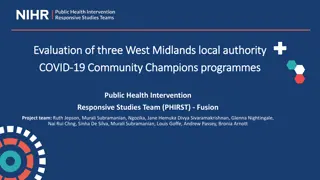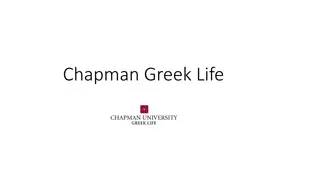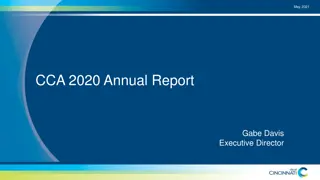Champions of Change: Beyond Demographics to Impact
A discussion on the importance of culturally responsive teaching, civic engagement, and eligibility criteria for Predominately Black Institutions. Highlighting the role of education in promoting social change and empowering students to overcome challenges.
Download Presentation

Please find below an Image/Link to download the presentation.
The content on the website is provided AS IS for your information and personal use only. It may not be sold, licensed, or shared on other websites without obtaining consent from the author.If you encounter any issues during the download, it is possible that the publisher has removed the file from their server.
You are allowed to download the files provided on this website for personal or commercial use, subject to the condition that they are used lawfully. All files are the property of their respective owners.
The content on the website is provided AS IS for your information and personal use only. It may not be sold, licensed, or shared on other websites without obtaining consent from the author.
E N D
Presentation Transcript
Beyond Demographics of Disadvantage to Champions of Change Taralyn Keese, MSW Dept. of Social Sciences Senior Lecturer
Purposes of Liberal Arts Education Civic Engagement A liberal arts education provides students with broad knowledge of the wider world to prepare them to deal with the diversity and change in human society and its many complexities.
CSU: A PBI-Beyond Demographics PBI s must meet three main eligibility requirements to qualify for federal Predominately Black Institution (PBI) grant funding: (1) Enrollment enrollment of undergraduate students that is at least 40% Black American 65% of CSU Students identify as Black 82% of CSU Students identify as people of color https://www.clayton.edu/institutional-research/spring2024fastfacts.pdf (2) Needy students as defined by Title III, Part F, Section 371 of the HEA. 63% of degree/certificate-seeking undergraduate students at CSU were awarded Federal Pell grants in Academic year 2021-22 https://nces.ed.gov/ipeds/dfr/2023/ReportHTML.aspx?unitId=139311
CSU: A PBI- Beyond Demographics (3) Core Expenses Requirement - have an average educational and general expenditure that is low, per full-time equivalent undergraduate student compared to the average educational and general expenditure costs of institutions that offer similar instruction. https://nces.ed.gov/ipeds/dfr/2023/ReportHTML.aspx?unitId=139311
Culturally Responsive Teaching and Design: Our students identities and experiences can inform interventions and strategies that promote social change and upward social mobility. As a PBI, we have a unique opportunity to prepare students to be change-makers by addressing the social conditions they have navigated or observed. Reframing deficit thinking about our students to an asset mindset enables us to produce culturally responsive curriculums affirming our students' agency and resilience.
Culturally Responsive Teaching and Design A set of practices designed to build on students backgrounds as teaching and learning occur. Cruz, R. et.al. (2019). A strength-based approach to teaching that is grounded in the belief and expectation that minoritized students are capable of high academic achievement when provided with appropriate resources and support. Incorporates culturally relevant instruction that values the diverse backgrounds and lived experiences of students and encourages students to develop an in-depth awareness of social inequities and power dynamics that shape the learning environment and society at large. (Ladson-Billings, 1995).
Culturally Responsive Teaching and Design: Requires faculty to develop and demonstrate culturally responsive teaching skills and engage in cultural humility. (Aronson & Laughter, 2016). How are we leveraging our students identities and experiences to shape our pedagogy and praxis with intentionality?
References Aronson, B., & Laughter, J. (2016). The theory and practice of culturally relevant education: A synthesis of research across content areas. Review of Educational Research, 86(1), 163 206. https://doi.org/10.3102/0034654315582066 Cruz, R., Manchanda, S., Firestone, A., & Rodl, J. (2019). An Examination of Teachers Culturally Responsive Teaching Self-Efficacy. Teacher Education and Special Education The Journal of the Teacher Education Division of the Council for Exceptional Children. 10.1177/0888406419875194. Clayton State University Institutional Research. Fast Facts (2024) https://www.clayton.edu/institutional-research/spring2024fastfacts.pdf Institution of Education Sciences. IPEDS Data Feedback Report (2023). https://nces.ed.gov/ipeds/dfr/2023/ReportHTML.aspx?unitId=139311


